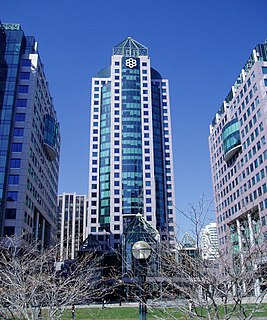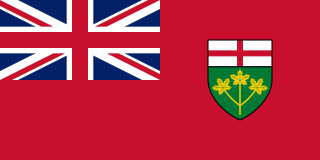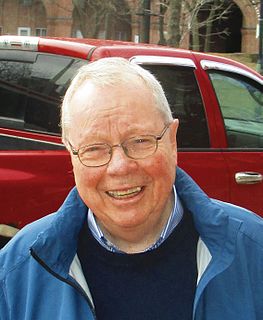The Toronto municipal election of 1976 was held on December 6, 1976 in Metropolitan Toronto, Ontario, Canada. Mayors, city councillors and school board trustees were elected in the municipalities of Toronto, York, East York, North York, Etobicoke and Scarborough.

The Municipality of Metropolitan Toronto was an upper tier level of municipal government in Ontario, Canada from 1954 to 1998. It was made up of the old city of Toronto and numerous townships, towns and villages that surrounded Toronto, which were starting to urbanise rapidly after World War II. It was commonly referred to as "Metro Toronto" or "Metro".

Ontario is one of the 13 provinces and territories of Canada and is located in east-central Canada. It is Canada's most populous province accounting for 38.3 percent of the country's population, and is the second-largest province in total area. Ontario is fourth-largest in total area when the territories of the Northwest Territories and Nunavut are included. It is home to the nation's capital city, Ottawa, and the nation's most populous city, Toronto, which is also Ontario's provincial capital.

Canada is a country in the northern part of North America. Its ten provinces and three territories extend from the Atlantic to the Pacific and northward into the Arctic Ocean, covering 9.98 million square kilometres, making it the world's second-largest country by total area. Canada's southern border with the United States is the world's longest bi-national land border. Its capital is Ottawa, and its three largest metropolitan areas are Toronto, Montreal, and Vancouver. As a whole, Canada is sparsely populated, the majority of its land area being dominated by forest and tundra. Consequently, its population is highly urbanized, with over 80 percent of its inhabitants concentrated in large and medium-sized cities, many near the southern border. Canada's climate varies widely across its vast area, ranging from arctic weather in the north, to hot summers in the southern regions, with four distinct seasons.
Contents
- Toronto
- Mayoral race
- City council
- Changes
- Metro boroughs
- East York
- Etobicoke
- North York
- Scarborough
- York
- References
Toronto Mayor David Crombie and North York Mayor Mel Lastman were both re-elected without serious opposition.

David Edward Crombie is a Canadian politician, professor and consultant. Crombie served as mayor of Toronto from 1972 to 1978. In federal politics, he served as a Progressive Conservative Member of Parliament from 1978 to 1988 serving in several cabinet positions.

Melvin Douglas "Mel" Lastman, nicknamed "Mayor Mel" or "Mega City Mel", is a Canadian businessman and politician. He is the founder of the Bad Boy Furniture chain. He served as the mayor of the former city of North York, Ontario, Canada from 1973 until 1997. At the end of 1997, North York, along with five other municipalities, was amalgamated with the city of Toronto. Lastman ran for and won the mayoral race for the new "megacity", defeating incumbent Toronto mayor Barbara Hall. Re-elected in November 2000, he served until his retirement after the 2003 municipal election.


